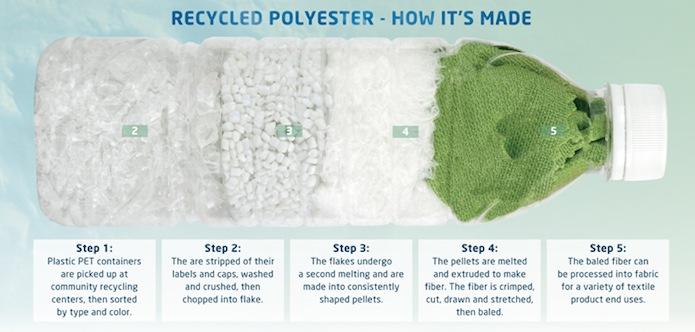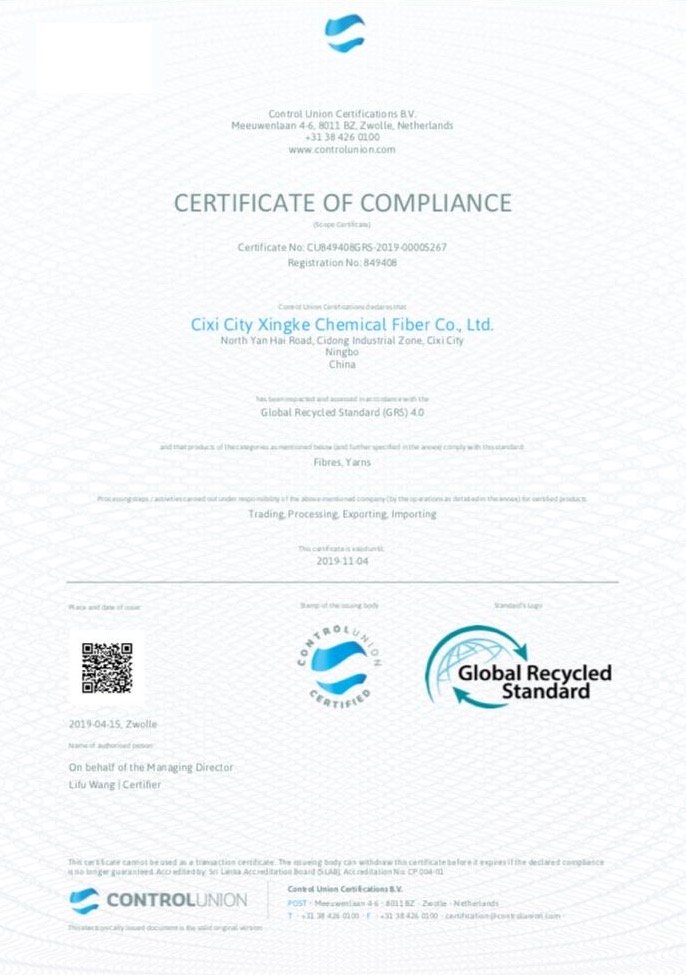Recycled polyester (rPET) uses PET as a raw material which is often found in water bottles. To turn these bottles into the material, the plastic is sterilised and crushed. It is then spun into a string of yarn which can be transformed into a fibre and then blended into a fabric. Clothes commonly made from recycled polyester include sportswear, loungewear and outdoor garments like puffer jackets.

Designing clothes with recycled polyester has a number of advantages.
Firstly, because polyester accounts for over half of fibres used in the textile and apparel industry – replacing it with a recycled alternative is instantly going to be better at reducing dependency on fossil fuels. The development of a popular non-virgin alternative will have a positive impact on energy requirements in the future. This will act as a tool to help brands cut their greenhouse gas emissions across the supply chain.
Secondly, recycled polyester helps to reduce the seismic waste in the fashion industry that sees over 48 million mt of clothes disposed annually. It is an intuitive way to find value in waste and encourages positive recycling behaviors. It also introduces shoppers to the innovative possibilities of sustainable fabrics.
Another benefit is that recycled polyester has a smaller carbon footprint than virgin polyester. A 2017 research study found that manufacturing rPET generates 79% less carbon emissions than producing its virgin counterpart. So, using recycled polyester may help brands meet their climate targets and contribute to the 2015 Paris Agreement and Sustainable Development Goals.
Transforming plastic into fabric works as one way to help minimize the 8 million tons of plastic that find themselves in our oceans every year. This can help to protect marine ecosystems and underwater wildlife that is often endangered by plastic pollution.
Finally, adopting recycled fibers like recycled polyester, can foster collaboration within the fashion industry and promote change. For example, the Textile Exchange in 2019 challenged over 50 brands including Adidas, GAP and H & M to increase their use of recycled polyester by 25% by 2020. They achieved this before the deadline and increased their use by 36%. More organizations are joining the movement and have pledged to make 20% of all global polyester recycled by 2030 – a really important goal for curbing emissions and removing reliance on fossil fuels.
